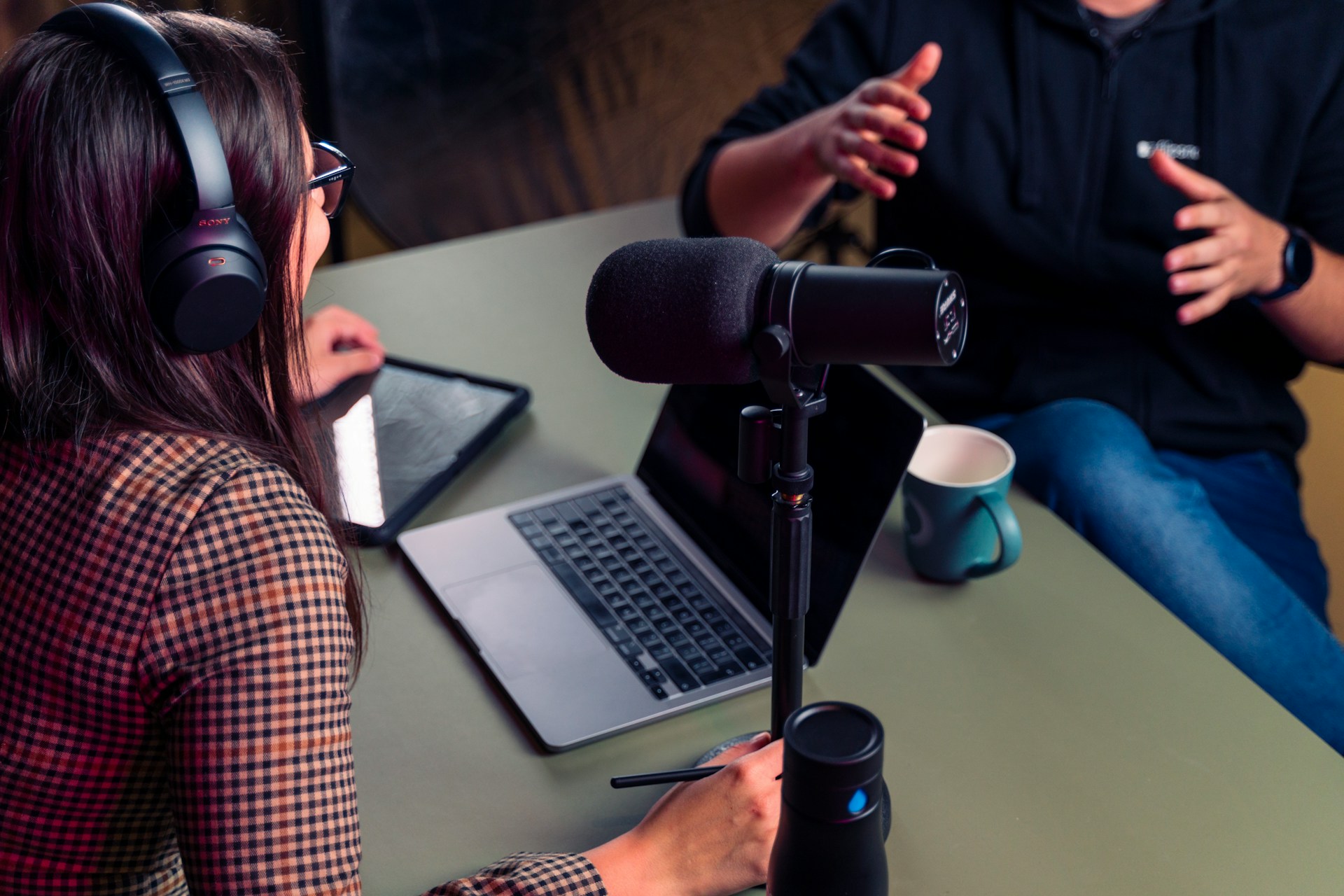Why podcasts work: The art of being a perfect stranger
When you decide to travel on the bus without any trending audios playing into your ear, you might notice a mother patiently explaining public transportation to a child who is adamant about pressing the stop signal. You might also hear some voices around you discussing the weather, university, or their families. None of it is meant for you. It is eavesdropping, yes, but simultaneously something gentler. In those moments, you feel small in the scheme of things, like one trajectory among billions or one person in a chorus. You understand, learn, and soften a little. It is similar to how people’s trajectories change after a chance conversation with a stranger they met amidst the bustle of life.
This might be why podcasts work, because it is sanctioned overhearing that lets us borrow company while staying safe at the edge of the conversation. The cherry on top is that you get to choose your company, and together you become perfect strangers.
Have you ever felt ecstatic when two of your favourite musicians announce a collaboration, or gutted when your favourite F1 driver crashed at his home Grand Prix? Have you had imaginary conversations with your favourite actor? Do you follow every news article, interview, and social media post about them? This is what psychologists call a parasocial interaction, a one-sided connection that one forms with a celebrity, such as an actor, athlete, influencer, or even fictional characters. While extreme forms of such interaction can become dangerous, healthy parasocial interaction is stated to be a source of inspiration, motivation, and a way for people to connect when they are cities or countries apart.
Podcasts also hit the sweet spot by fitting right into our daily routines
Podcasts work because they are another mode of parasocial interaction, one that gets the gears turning instead of leading to doomscrolling or clickbait. Podcasts are usually intimate in nature, not only for the listener who gets to be in on the conversation but also for the podcaster and the guest. A podcast’s slower and more reflective format allows people to think, pause, and elaborate on stories and opinions that rarely make it into traditional media. Trevor Noah’s If I Ruled the World series offers listeners a fresh view on how their favourite celebs view the world. Christiana Mbakwe-Medina proposed mandatory foreign travel every year; Josh Johnson wants pettiness to not only become a form of power, but also be rewarded (listen to know how petty the current world already is), while Trevor Noah wants to remove the forced amicability required in a workplace. Listeners get to ponder about these hypotheticals, while discovering new sides to celebrities that feel genuine and deeply human.
Podcasts also hit the sweet spot by fitting right into our daily routines, offering us company on commutes, meal prep, and nighttime routines. During a time of endless notifications and digital chatter, listening becomes an art of rest and comfort. Podcasts allow one the freedom to be part of a conversation, sharing laughter and curiosity, but without the pressure to respond. Alongside your routine sounds of the clatter of dishes, the sizzling pot, and birdsong filtering through your window, Emma Chamberlain going on about her unpopular opinions sets up the feeling that she’s chatting to you as you go about your chores.
Much like listening to strangers’ chat on the bus, podcasts turn the smallest of moments into something meaningful.
Podcasts thrive on intimacy, repetition, and familiarity, and many develop inside jokes, recurring segments, and running stories. These make listeners feel part of a growing community, where the more they listen, the more they are rewarded. With regular episodes and new series, podcasts create anticipation just as much as your favourite TV show. Waiting for the next instalment, especially when you know it’s going to feature another celebrity you adore, can feel like counting down the days to a new The Summer I Turned Pretty episode.
Podcasts deal with the everyday, relatable topics that you can nod along to as you fold laundry or walk to class. They remind you that almost everyone, with their own set of principles and values, is trying to make sense of the world one thought at a time. Much like listening to strangers’ chat on the bus, podcasts turn the smallest of moments into something meaningful. Whether it’s Jay Shetty’s moving conversation with Malala Yousafzai or Dua Lipa’s entertaining conversation with Amelia Dimoldenborg, the podcast world sure caters to every single human mood.

Comments